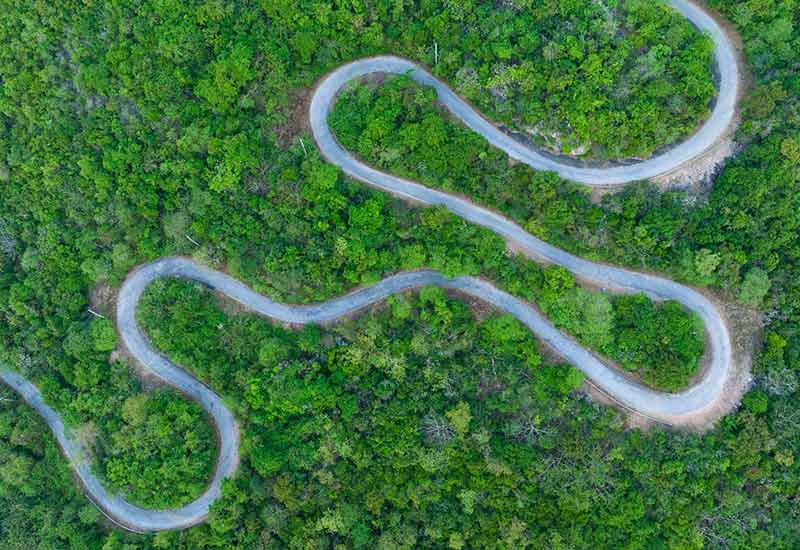Get the right experience for you. Please select your location and investor type.
IMPORTANT NEWS: Transition of investment management responsibilities
First Sentier Group, the global asset management organisation, has announced a strategic transition of Stewart Investors' investment management responsibilities to its affiliate investment team, FSSA Investment Managers, effective Friday, 14 November close of business EST.

The importance of stewardship when selecting companies
We believe the quality of people behind a business has the greatest bearing on its long-term success or failure. Read examples of our portfolio holdings across a range of ownership models, all with exceptional cultures, and also where we've made mistakes.
Summary:
- We believe the quality of people behind a business has the greatest bearing on its long-term success or failure.
- We have found through time that one of the surest ways to lose client money, is by handing it to people who do not have as their prime focus, the long-term performance of their company and minority shareholders who are along for the ride.
This article gives examples of:
- Portfolio holdings across a range of ownership models, all with exceptional cultures
- What makes us change our minds on stewardship and
- Where we’ve made mistakes
It is often said that investing is simple, but not easy. We believe that too few investment managers have the scope, the inclination, the culture, or a structure that enables them to take a view longer than the next twelve months when making investment decisions. But in a world which is increasingly short-term focussed, one of the most enduring competitive advantages a company can have is a long-term business builder at the top.
People who act as long-term owners in their capital decisions and risk taking are all too rare in global equity markets. We often find them as first-generation entrepreneurs, families, foundations or organisations with exceptional cultures. Research suggests family backed companies create value1. In a world of corporate blow-ups, short term management enrichment, and mistreatment of minority shareholders, it’s important to know who you are handing your money to.
We believe the quality of people behind a business has the greatest bearing on its long-term success or failure. When we assess the quality of people at a company we ask simple questions, of the sort you might ask when entering a long-term business relationship with someone: do they share our time horizon and view of risk; are they competent; how are they incentivised; do they have a track record of treating all stakeholders fairly? We learn a lot by examining financial history, having conversations with people, and doing third-party reference checks. What we learn helps us gain and build conviction in people and cultures.
What we look for
We have often backed individuals who have founded companies, or who continue to steward a company under a family name. One of the largest holdings in our Worldwide strategies is US based cybersecurity company Fortinet. Fortinet was founded and is still run today by two brothers, Ken and Michael Xie. They have a long history of building successful cyber security businesses based on their engineering education and training.
Our observation is that the Xie brothers have built Fortinet from a set of simple principles, grounded in winning business by driving product expansion through technical merit, while the industry chases the short-term gain of acquisition. It’s an approach that has enabled them to offer a single platform approach to cyber security. This provides customers with the simplicity that many others can’t achieve as they are held back by the legacy of purchased technology and the complexity that comes along with it. By developing their own hardware and investing over $1bn during a 17-year period in chip power development, they have produced a chip that delivers better performance at a better cost base2. The impact of this is twofold, in that other companies struggle to compete with Fortinet pricing, and their customers with lower budgets can still access best of breed solutions, expanding the market opportunity for the company. We think it is no coincidence that the share price of Fortinet has returned on average 32% per year over the 10 years to the end of January 2025 and is one of the largest positive contributors to the Worldwide strategy performance over almost every period.3
A company that we hold in both our Worldwide and Global Emerging Markets strategies is Brazilian-based WEG. WEG started life as an electric motor company in 1961, founded by the three people whose initials became its name: Werner Ricardo Voight, Eggon Joao de Silva and Geraldo Werninghaus. Over the last 65 years, it has grown into a company that produces electrical products for end markets. These range from industrial automation, power generation and distribution, and large electric vehicles. While it is no longer run by the families of the founders, they remain majority shareholders. This enables them to take decisions in the long-term interest of the company, including appointing long-tenured management teams. Their new CEO, Alberto Yoshikazu Kuba, is only the fourth in WEG’s history and he joined the business in 2002 aged 24.
A key decision made early on in WEG’s history was to remain vertically integrated. They make every element of every product themselves and even source packaging materials from their own forest. This is in sharp contrast to the drive for efficiency through outsourcing that has been business orthodoxy over past decades. At times it has slowed their rate of capacity expansion. But it has provided them with a critical advantage: they can take market share when competitors are paralysed by supply chain snarls. For example, they have been able to supply transformers to electricity-hungry data centres even as competitors face 4-year delays in building additional capacity. And this has translated into stock market returns of 15% per year over the past 10 years, beating the global index returns of 10% per year over the same period.4
We also find many examples of strong stewardship in Asia, one of these being Japanese company, Hoya, held across our Worldwide, Asia Pacific and Global Emerging Markets portfolios. Eiichiro Ikeda has been the CEO since 2022. He has worked at the company for 30 years, bridging the transition from a family-owned company to professional management. Hoya is a leading producer of precision glass products which range from optical lenses for spectacles through to the equipment needed in the manufacture of semiconductors and computer hard drives. Hoya was founded in 1941 by two brothers and over the past 80 years has evolved into its current form through a dogged focus on consistent delivery in high value, niche areas. Appointing an internal long-tenured employee to CEO allows that forward-looking culture of ownership to persist as they continue to seek out areas where they have a competitive advantage, leading to the generation of strong cash flows and returns.
What we avoid
Conversely, we have sold investments when the people we backed left, or made decisions that we believed were not in the best interests of shareholders. Our initial decision to invest in a world-leading healthcare company was driven by a CEO who simplified a complex conglomerate into a focused healthcare business. However, our confidence in the company was challenged when the management of the business responded inadequately to quality issues in one of their products. The way people respond to a crisis provides insights into the quality of stewardship. In this case, we felt that the short-term needs of shareholders were prioritised over the long-term health of the business. We sold our shares in the company after engaging with management on these concerns. We continue to monitor progress, as there have been some recent changes in stewardship with new management and the arrival of a significant shareholder.
And of course, there are countless investments which we do not make because we do not believe the management is of sufficient quality. This often happens with companies that could be considered high-quality businesses in most other respects and are often found in sustainable and ESG funds. For example, Bloomberg estimates that around 770 ESG funds worldwide were holding shares of a green energy company when its chairman was accused by US prosecutors of suspected bribery.5
We don’t always get it right
Like any investment decision, there are times when we get our judgement of people wrong. For example, following an impressive decade-long turnaround in a Dutch medical equipment manufacturer, in 2021 we mistakenly backed company management to manage a product recall. But a slow response by management led to greater regulatory scrutiny and lack of confidence in the company, hampering future growth. We also supported management at a US life sciences company to complete the acquisition of a former subsidiary in 2020. But they misread the regulatory environment which led to a hefty fine and several years of legal battles before divesting the subsidiary again.
Like any qualitative judgement, assessing the quality of the people in charge of companies is more of an art than a science. We have made some mistakes and continue to challenge ourselves in order to learn from them. We have found through time that one of the surest ways to lose client money, is by handing it to people who do not have as their prime focus, the long-term performance of their company and minority shareholders who are along for the ride. Since 1988, we have had an investment approach that is focused on finding and investing in high quality companies. This has given us a wealth of research about companies and families, including the way that they behave throughout economic cycles and how they adapt during difficult times. Over the past decades we have been fortunate enough to invest alongside some great business builders where incentives, decisions and timeframes have led to fantastic growth over the long term.
Important Information
This material is a financial promotion / marketing communication but is for general information purposes only. It does not constitute investment or financial advice and does not take into account any specific investment objectives, financial situation or needs. This is not an offer to provide asset management services, is not a recommendation or an offer or solicitation to buy, hold or sell any security or to execute any agreement for portfolio management or investment advisory services and this material has not been prepared in connection with any such offer. Before making any investment decision you should conduct your own due diligence and consider your individual investment needs, objectives and financial situation and read the relevant offering documents for details including the risk factors disclosure.
Any person who acts upon, or changes their investment position in reliance on, the information contained in these materials does so entirely at their own risk.
We have taken reasonable care to ensure that this material is accurate, current, and complete and fit for its intended purpose and audience as at the date of publication. No assurance is given or liability accepted regarding the accuracy, validity or completeness of this material.
To the extent this material contains any expression of opinion or forward-looking statements, such opinions and statements are based on assumptions, matters and sources believed to be true and reliable at the time of publication only. This material reflects the views of the individual writers only. Those views may change, may not prove to be valid and may not reflect the views of everyone at First Sentier Group.
Past performance is not indicative of future performance. All investment involves risks and the value of investments and the income from them may go down as well as up and you may not get back your original investment. Actual outcomes or results may differ materially from those discussed. Readers must not place undue reliance on forward-looking statements as there is no certainty that conditions current at the time of publication will continue.
References to specific securities (if any) are included for the purpose of illustration only and should not be construed as a recommendation to buy or sell the same. Any securities referenced may or may not form part of the holdings of First Sentier Group portfolios at a certain point in time, and the holdings may change over time.
References to comparative benchmarks or indices (if any) are for illustrative and comparison purposes only, may not be available for direct investment, are unmanaged, assume reinvestment of income, and have limitations when used for comparison or other purposes because they may have volatility, credit, or other material characteristics (such as number and types of securities) that are different from the funds managed by First Sentier Group.
Selling restrictions
Not all First Sentier Group products are available in all jurisdictions.
This material is neither directed at nor intended to be accessed by persons resident in, or citizens of any country, or types or categories of individual where to allow such access would be unlawful or where it would require any registration, filing, application for any licence or approval or other steps to be taken by First Sentier Group in order to comply with local laws or regulatory requirements in such country.
About First Sentier Group
References to ‘we’, ‘us’ or ‘our’ are references to First Sentier Group, a global asset management business which is ultimately owned by Mitsubishi UFJ Financial Group (MUFG). Certain of our investment teams operate under the trading names AlbaCore Capital Group, First Sentier Investors, FSSA Investment Managers, Stewart Investors and RQI Investors all of which are part of the First Sentier Group. RQI branded strategies, investment products and services are not available in Germany.
This material may not be copied or reproduced in whole or in part, and in any form or by any means circulated without the prior written consent of First Sentier Group.
We communicate and conduct business through different legal entities in different locations. This material is communicated in:
- Australia and New Zealand by First Sentier Investors (Australia) IM Ltd, authorised and regulated in Australia by the Australian Securities and Investments Commission (AFSL 289017; ABN 89 114 194311)
- European Economic Area by First Sentier Investors (Ireland) Limited, authorised and regulated in
- Ireland by the Central Bank of Ireland (CBI reg no. C182306; reg office 70 Sir John Rogerson’s Quay, Dublin 2, Ireland; reg company no. 629188)
- Hong Kong by First Sentier Investors (Hong Kong) Limited and has not been reviewed by the Securities & Futures Commission in Hong Kong. First Sentier Group, First Sentier Investors, FSSA Investment Managers, Stewart Investors, RQI Investors and Igneo Infrastructure Partners are the business names of First Sentier Investors (Hong Kong) Limited.
- Singapore by First Sentier Investors (Singapore) (reg company no. 196900420D) and this advertisement or material has not been reviewed by the Monetary Authority of Singapore. First Sentier Group (registration number 53507290B), First Sentier Investors (registration number 53236800B), FSSA Investment Managers (registration number 53314080C), Stewart Investors (registration number 53310114W), RQI Investors (registration number 53472532E) and Igneo Infrastructure Partners (registration number 53447928J) are the business names of First Sentier Investors (Singapore).
- United Kingdom by First Sentier Investors (UK) Funds Limited, authorised and regulated by the Financial Conduct Authority (reg. no. 2294743; reg office Finsbury Circus House, 15 Finsbury Circus, London EC2M 7EB)
- United States by First Sentier Investors (US) LLC, registered with the Securities Exchange Commission (SEC# 801-93167).
- other jurisdictions, where this document may lawfully be issued, by First Sentier Investors International IM Limited, authorised and regulated in the UK by the Financial Conduct Authority (FCA ref no. 122512; Registered office: 23 St. Andrew Square, Edinburgh, EH2 1BB; Company no. SC079063).
To the extent permitted by law, MUFG and its subsidiaries are not liable for any loss or damage as a result of reliance on any statement or information contained in this document. Neither MUFG nor any of its subsidiaries guarantee the performance of any investment products referred to in this document or the repayment of capital. Any investments referred to are not deposits or other liabilities of MUFG or its subsidiaries, and are subject to investment risk, including loss of income and capital invested.
© First Sentier Group



